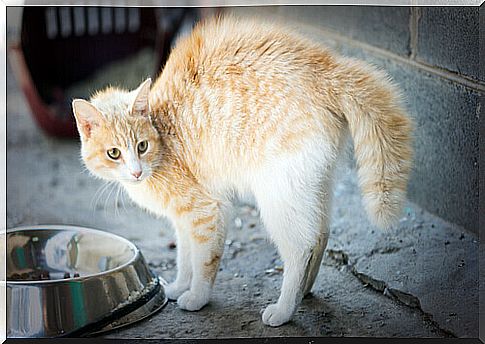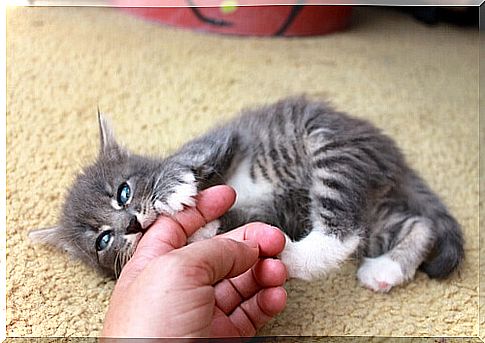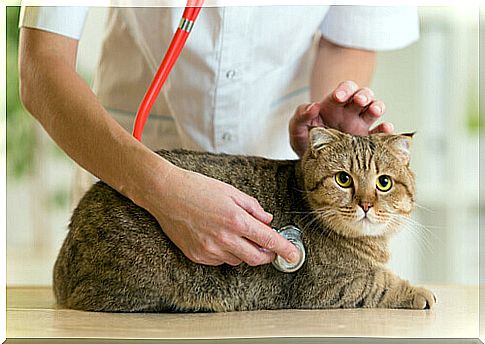5 Causes Of Phobia In Cats

Anyone who has a kitten knows how sensitive they are to situations that change their daily routine. From unusual noises to moving furniture, we’ll tell you the main causes of phobias in cats and how to solve this problem.
Know some of the causes of phobia in cats
Domestic cats are territorial animals and want to have control over the place they inhabit. That’s precisely why some changes in the environment can cause fear. But when the fear gets disproportionate, it turns into a phobia.
Among the main causes that provoke this exaggerated fear, we can highlight:

- Strange and sudden noises. For example: thunder, alarms, sirens, appliances in operation, etc.
- Presence of strange people in the house. This can occur if the kitten has not been properly socialized.
- Contact with unknown animals.
- Temporary or permanent move to a place foreign to him.
- Changes in the order of furniture or the presence of new objects in the house.
How to recognize a cat with a phobia
Phobias are easily detected in cats and are often remediable, although they are more difficult to treat than simple fear. Therefore, it is very important to be able to identify the signals in time.
In situations that they consider dangerous, felines develop a state of anxiety and can react in different ways, including:
- They flee and hide in a place they consider safe.
- Show intention to attack (hair ruffles, back arches, snorts or ears tilt back).
- They remain immobile, as if paralyzed, or even tremble.
- May have tachycardia and diarrhea.
- They become hyperactive or aggressive.
- They mark territory with urine or feces anywhere in the house.
- They lick in excess, which can cause alopecia (hair reduction in a region of the body).
Tips for Dealing with a Phobic Kitten
Remember that you shouldn’t approach a cat when it’s upset with fear, let alone touch it or try to hold it. Most likely the animal will try to scratch you.
Leave it alone for a while and, when it’s calmer, try to get closer again, without forcing the kitten.
In addition, the ideal is that the feline can have a space at home where he feels safe and can hide when he feels intimidated.
Remember that you should never encourage this kind of behavior from your feline friend. Much less reprimand or punish the animal. You will only be able to make the situation worse, making recovery even more difficult.
Consult an animal behavior specialist
To cure this “intense and irrational fear of something or situation”, as the dictionary defines, it will probably be necessary the help of a professional.
A veterinarian or an animal behavior specialist (ethologist) is best suited to correctly diagnose and determine how to solve this problem for your pet.
But you can help by identifying which situations, beings or objects your feline friend reacts to with fear. In this way, pay close attention to his behavior so that you can explain to the professional in detail everything you observed.

How to Treat Phobia in Cats
A possible solution to this problem is to expose the pet, very slowly, to the situation that causes anxiety and fear. Thus, the pussy will gradually lose its fear.
That’s why it ‘s very important to give some reward to the furry one when he conquers some advance, either with caresses, affectionate words or some food he likes.
You will see that patience and love are fundamental keys in living together, both with pets and with people.








